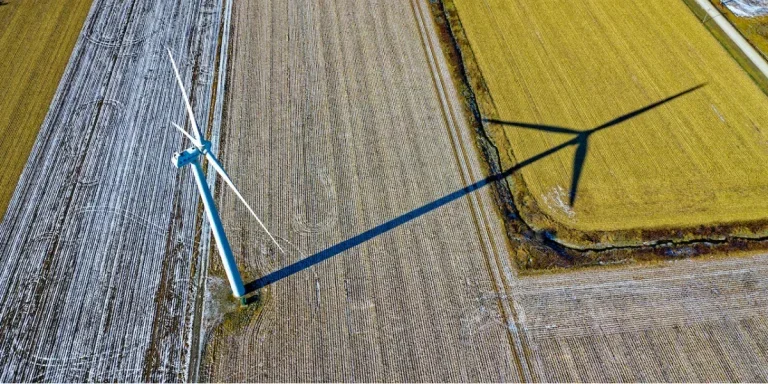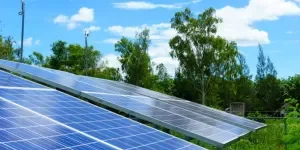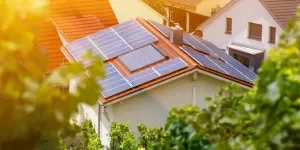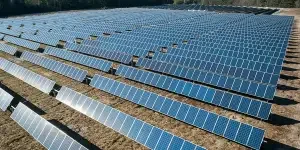- A study commissioned by Stiftung KlimaWirtschaft, carried out by Deloitte, explores EU’s industrial policy response to the IRA
- It recommends fast and pragmatic action on part of the EU for its GDIP and NZIA policies, learning from the simplicity of the IRA
- Current policy structure appears too complex; it needs to be simplified along with speeding up approval procedures
- EU should chart its own path instead of entering a subsidy race with other economic blocs
To meet the challenge and the opportunity that the Inflation Reduction Act (IRA) presents for the European Union (EU), the latter should respond with a pragmatic, smart and effective industrial policy that speeds up renewable energy industry instead of entering a ‘subsidy race with other economic blocs’, according to a Deloitte study. The report was commissioned by the German CEO Alliance for Climate and Economy or Stiftung KlimaWirtschaft.
“It remains crucial that the EU does not enter into a subsidy race with other economic blocs but finds its own path for a smart and effective industrial policy,” says Stiftung KlimaWirtschaft. The study is titled IRA and the net-zero race—How EU industrial policy should respond.
Seeing how the IRA has become the most significant tool for the US to boost its renewable energy manufacturing scene, the study picks simplicity as one of its defining characteristics. Building on the tax credits that support opex or capex for companies, the funding is transparent and easy to understand under the IRA. Companies themselves can calculate business cases for potential investment in products supported by the IRA.
On the other hand, the EU’s policy support for green industrial policy is too complex in its present form which is bound to delay urgent action required.
Stating that ‘perfect is the enemy of the good’, the Managing Director of Stiftung KlimaWirtschaft, Sabine Nallinger called for the EU to roll-out its ambitious proposals—EU Green Deal Industrial Plan (GDIP) and the Net-Zero Industry Act (NZIA)— in a ‘fast and courageous way without further delay’.
EU’s NZIA is part of the GDIP under which the bloc aims for 40% PV manufacturing target of internal demand in 2030 translating into around 50 GW if 125 GW is deployed according to SolarPower Europe’s estimates.
At the current pace of installations, the report believes REPowerEU’s solar power capacity targets of 2030 will be missed by 258 GW reaching 334 GW, and wind power will be missed by 231 GW to 279 GW.
Annual manufacturing output for solar PV will need to increase 6-fold from the current levels as it competes in a market dominated by Chinese manufacturers. According to the analysts, PV manufacturing within the EU needs to increase by 21.5 GW from 4.5 GW now since by 2030 the actual production capacity will reach 26 GW, but the demand will be for 65 GW.
To deal with these emerging situations, Deloitte writers recommend the EU to go fast by speeding up approval procedures and simplifying regulations to boost renewables and their manufacturing within the bloc.
The GDIP that aims to achieve this industrial green value chain is ‘highly complex’ in its present form due to which it ‘fails to provide the required direction and simplification required from an EU response to the IRA’.
The study recommends following ways by which the GDIP can be improved:
- Focus on EU-level instruments by giving a much larger role to the Innovation Fund. Also, Important Projects of Common European Interest (IPCEI) could be reformed to become simpler to use.
- Smart subsidies as auctions and contracts for difference (CfD) to be preferred over nominally fixed benefits as tax credits but designed in a ‘lean way’.
- Identify where in value chains financial support is required and where obstructions can be removed by simplifying regulation or other measures.
- Existing instruments should be streamlined and simplified, instead of proposing newer ones which will take time and make the system hard to use.
- Bring down energy costs, using the price-lowering effect of renewable energy which is a ‘key disadvantage’ of the bloc compared to the US and providing certainty about new electricity market design.
Analysts argue that a European industrial policy should not support industries that would forever remain dependent on subsidies.
“Financial support is justified if it is temporary and supports nascent value chains that will become efficient once a certain scale has been reached or if it counters subsidies offered in other countries that would attract away value chains otherwise located in the EU,” reads the study.
The report comes out shortly after the European Commission in mid March presented its Critical Raw Materials Regulation and Net Zero Industry Act (NZIA) claiming these will create ‘best conditions’ for sectors crucial to the bloc’s net zero goal of 2050, including solar PV. While the NZIA proposal also included protective elements for the solar manufacturing in Europe, PV industry association SolarPower Europe (SPE) isn’t too thrilled saying the industry needs a dedicated financing vehicle to incentivize local solar manufacturing to cover both opex and capex.
The complete Deloitte study is available for free download on Stiftung KlimaWirtschaft’s website.
Source from Taiyang News
The information set forth above is provided by Taiyang News independently of Alibaba.com. Alibaba.com makes no representation and warranties as to the quality and reliability of the seller and products.




